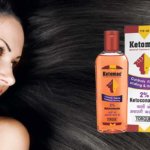Trends come and go, but taking care of your own skin is one thing that remains relevant forever. 2020 has not been the year that we expected it to be, but that should not keep you from taking necessary measures for proper skincare. In fact, there has been significant development in the area of beauty and skincare in the past few months. And if you are someone who loves to learn new things about beauty innovation, here are 13 latest skincare trends in 2020 that you need to know.
- Sustainable beauty:
Sustainable beauty one of the best skincare trends of 2020, green beauty, or eco-beauty – whatever you prefer to call it, actually goes beyond fashion and beauty. It is often identified as a part of a larger philosophy of life. It is an approach to self-care that emphasises complete avoidance or minimisation of synthetic preservatives and fragrance.
An independent organisation, EcoCert is now giving a Cosmos certification to sustainable beauty products. Besides avoiding the use of non-GMO ingredients and petrochemicals, a lot of beauty companies are now using sustainable options for packaging and avoiding single-use plastics. L’Oreal has vowed to move to paper-based cosmetic tubes in 2020.
- Vegan beauty:
Vegan beauty is another top skincare trend 2020. The vegan movement has gained a lot of momentum in recent years. Needless to say, the people in the beauty and skincare industry trends are also influenced by it. Since a significant number of people have started to practice veganism, there has been an emergence of plan-first perspective even in the beauty industry as well.
The founder of beauty e-commerce site Cult Beauty, Alexia Inge reportedly revealed that there had been an emergence of “seeds” of new sub-categories in this segment. Some of the major sub-categories of this plant-first approach are:
- Shortcut cruelty-free
- Halal beauty
- Nature-identical
- Zero-Waste beauty products:
As the green and sustainable beauty sector continues to flourish, beauty and skincare companies are now focusing more on zero-waste packaging choices. The term “zero waste” works towards the goal of sending nothing to a landfill. Such an idea is more relevant than ever, as experts predict that global solid waste generation will exceed 11 million tons per day by 2100.
Since the organic skincare products have a shorter shelf life, they can spoil quicker than regular synthetic products. Thus, it is recommended to buy smaller bottles of skincare products to avoid wastage. The packaging of the products is being redesigned considering the zero-waste approach. Using bio-degradable containers and less packaging is now gaining a lot of attention.
- Clean beauty:
Consumers are now more aware than ever about they are putting onto their skin. This explains why consumers are now prioritising products that do not contain ingredients such as phthalates, parabens, fragrances, drying alcohols, dies, etc. Also, consumers are now more inclined towards buying products that are certified as cruelty-free.
Since cosmetic products do not require FDA approval to come to the market, hundreds of new brands emerge every year. Also, the ingredient list on the product’s packaging is not always what it seems. This is the reason why it is important now to opt for clean beauty products, which follow these two criteria:
- Non-toxic ingredients
- Transparent labels
- Increasing popularity of CBD beauty:
According to Harvard Health Publishing, Cannabidiol (CBD) is an extract of the hemp plant which belong to the same family as the marijuana plant. Even though the level of THC (the psychoactive ingredient which gets people high) in hemp plants is no more than 0.3 per cent, CBD products still get a lot of attention in the beauty and the new skincare industry trends.
A report from Harper Bazaar reveals that there has been a 368% increase in the Google search on CBD skincare. It is a clear indication of an onslaught of new brands and products on the way. Experts suggest that the larger shift toward more natural beauty and wellness products is the reason behind the rise of CBD skincare.
- Rise of refillable products:
A lot of brands have started to produce refillable products which are great for the environment as they cut down on waste. Refillable products are now penetrating the mainstream market. Brands such as The Body Shop, Diptyque and more are now focusing on launching keep-forever products. The Body Shop has, in fact, installed a refill station in its new Bond Street store.
L’Occitane and Kjaer Weiss have been producing such refillable products for years. In fact, L’Occitane is aiming to offer refill pouches for 26 of its core products using 90% less plastic by the end of 2020. The fragrance is another area where the idea of refills will be useful. Le Labo, Kilian and Molton Brown already produce refills that decrease that waste involved.
- Upcycling:
Reports suggest that 2020 will witness the emergence of upcycling. It is about taking recycling to the next level. The objective is to repurpose the items to increase their longevity so that it is possible to avoid adding things to already overflowing landfills. In a statement, celebrity skincare guru Angela Caglia said that upcycling would replace recycling in 2020.
Besides minimising their imprint through sustainable packaging, some skincare brands are making efforts to boost the life-cycle of the products. For instance, Town & Anchor, a skincare brand, has teamed up with CLED, a sustainable handmade jewellery brand, to promote upcycling. CLED repurposes the empty face oil bottles from Town & Anchors to turn them into uniquely designed earrings.
- Microbiome movement:
The microbiome beauty movement has already started to gain momentum. Our skin is home to a community of billions of friendly microorganisms. This community of microorganisms is called skin microbiome. Essentially, the more strains of bacteria you have, the healthier your skin is. Thus, adding bacteria to the skin and using gentle products to maintain its balance is considered good for skin health.
Beauty brands such as Aurelia Probiotic Skincare and Gallinee have built their empire around microbiome skincare. However, experts believe that the trend of microbiome skincare will take off in 2020. Rouleau’s new Rapid Response Detox toner is meant to stop breakouts in the early stages. Supplement brand Aime has launched a capsule skincare range and probiotics.
- Scalp-care:
Trichologists are increasingly becoming more popular as people are now are considering their hair as important as makeup and skincare. Trends suggest that 2020 will see a huge shift towards haircare. Besides helping you maintain gut and skin health, probiotics are also being used in hair care in 2020. The scalp scrub from Ouai contains probiotic blend, and it is just one example.
The launch of Drunk Elephant range of hair products has made quite a lot of buzz in the first few months of 2020. It also gained a lot of popularity, when the hairstylist of Hollywood celebrity Jennifer Aniston used a Drunk Elephant detangling spray on the star.
- Inhalable beauty:
You may be surprised to know that there is a significant connection between our mind and our skin. In fact, there’s an entire field of study named psychodermatology. This is the reason why experts are working on fragrances to use the scent to “biohack” our brains and bodies to perform better. In fact, The Nue Co. is already using their product – Functional Fragrance for the same purpose.
We may see an increase in the use of aromatherapy in 2020 and beyond. Trends suggest that there will be new launches from functional fragrances, inhalable supplements, scented mood enhancers as well as next-generation essential oils.
- By-product beauty:
While the zero-waste product is likely to be the key in 2020, the by-product beauty is also growing as a trending segment in the beauty and skincare industry. The focus will be on repurposing waste from other processes to create new products. As you may have realised, the use of coffee grounds into facial scrubs is now leading the way for by-product beauty and skincare items.
Japanese bioethanol producer Fermenstation, which produces bioethanol for other beauty brands, has now launched its own line of beauty products. The company has made a bar of soap with the rice mash produced during the fermentation of its bioethanol. Another popular brand, LOLI Beauty, now offers a range of ethically-sourced products that encourages the customers to DIY.
- Phygital beauty:
As most of the customers now prefer to shop online for their retail needs, an increase in the use of “phygital beauty” is expected in 2020. Experts suggest that the consumers want to witness immersive and personalised mixed media experience, merging the physical with the digital, in order to learn about their skin and hair in more innovative ways.
In the beauty and skincare market, people still prefer to try a product before they buy. Due to this reason, there is a significant increase in the number of showrooms where consumers can see the products and try them in real life. This is where digital brands are trying to make their way in. You can expect to seem more numbers of pop-up showrooms to offer more immersive beauty experienced in 2020 and beyond.
- Supercharged SPF:
We are about to witness a major update in the suncare segment in the skincare and beauty industry. A lot of brands are now launching new technology in this category while addressing some sustainability issues which have challenged SPF products in the past.
The major issues that brands need to tackle are – the problematic nanotechnology which makes sunblock invisible on darker skin tones and the issues regarding the “reef safe” ingredients. It is also important to note that consumers are expecting a lot more from their sunscreen brands than before. Apart from the aforementioned issues, the brands are also expected to work on factors such as clean formulas, anti-pollution, pigmentation reduction, and anti-blemish benefits.
In conclusion,
You can certainly expect a lot of change in the beauty and best skincare trends in 2020. And while some of these aforementioned trends are still at their nascent stage, they are quite likely to be a big thing in the next few months or so. However, if you ever have any doubt regarding your skin health or the use of any new product, it is always better to consult with your dermatologist.
Author bio: Suhana Williams is a professional dermatologist who runs his own clinic at Adelaide, Australia. She is also a part of the team of experts at MyAssignmenthelp.com, where She offers assignment help to students on their requests. She also loves to play the guitar when She gets some free time.













